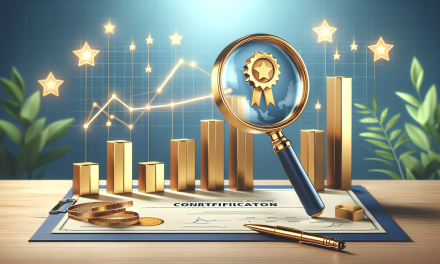Table of Contents
- Introduction
- What is Personal Productivity?
- The Importance of Personal Productivity
- Key Techniques to Boost Productivity
- Mindset and Attitude for Success
- Effective Time Management Strategies
- Embracing Technology for Productivity
- Developing Strong Communication Skills
- Mastering Problem-Solving Skills
- Fostering a Culture of Continuous Improvement
- FAQs
- Conclusion
Introduction
Boosting personal productivity impacts every aspect of our lives. Whether it’s our professional responsibilities or personal commitments, mastering our productivity enables us to do more in less time. In today’s fast-paced world, everyone seeks strategies to increase output while reducing stress. As you dive into the intricacies of personal productivity, you will uncover various techniques to help you enhance your efficiency and achieve your goals.
What is Personal Productivity?
Personal productivity refers to how effectively individuals utilize their time and resources to accomplish various tasks. It’s not just about doing more but doing better and focusing on tasks that significantly contribute to personal and professional goals. Effective personal productivity combines prioritization, time management, and ensuring you stay organized. Thus, it involves understanding your key duties and executing them efficiently.
The Importance of Personal Productivity
Understanding the importance of personal productivity is vital. Not only does it improve personal satisfaction, but it also drives success in your professional life. When you manage your time well, you can meet deadlines, surpass expectations, and have time left for personal pursuits and relaxation.
In addition, honing your productivity also enhances your energy levels and concentration, leading to better mental health. Consequently, as you cultivate these skills, you will experience heightened motivation and significantly reduced stress levels.
Key Techniques to Boost Productivity
Several effective strategies exist to improve personal productivity. Let’s explore a few of these key techniques:
1. Set Clear Goals
Setting clear, actionable goals is essential for focusing your efforts. Instead of vague aspirations, utilize the SMART criteria—Specific, Measurable, Achievable, Relevant, and Time-bound. This approach offers clarity and direction, helping you prioritize tasks efficiently.
2. Prioritize Tasks Effectively
Identifying which tasks hold the most significance will maximize your productivity. Consider using the Eisenhower Matrix to categorize tasks based on urgency and importance. By doing so, you’ll spend energy on what truly matters.
3. Break Tasks into Smaller Steps
Large tasks can feel daunting, leading to procrastination. To alleviate this, break each task into smaller, manageable steps. This technique allows for a gradual approach, boosting motivation as you complete each segment.
Mindset and Attitude for Success
Your mindset plays a crucial role in your productivity. Adopting a positive attitude fosters resilience against setbacks. Embrace challenges as opportunities for growth, and cultivate a habit of resilience. Additionally, stay curious and open to learning, as this attitude promotes continuous improvement.
Effective Time Management Strategies
Time management remains a critical component of personal productivity. Implementing practical strategies helps streamline your daily activities:
1. Use Technology Wisely
Today’s technology offers numerous tools for enhancing productivity. Consider utilizing apps designed for time management, such as Pomodoro timers or task management systems. These tools help you maintain focus and provide a visual representation of progress.
2. Establish Routines
Creating daily routines establishes structure, making it easier to stay on track. Identify a series of tasks completed each day to cultivate consistent habits. Over time, this practice enables you to allocate time efficiently across your endeavors.
Embracing Technology for Productivity
Tech tools also present opportunities for boosting your productivity. Leveraging resources such as project management software or digital calendars assists in organizing tasks and deadlines. One valuable resource to consider is the Boost Your Efficiency: Mastering Personal Productivity Course, which offers insights into utilizing technology to streamline your workflow.
Developing Strong Communication Skills
Effective communication arguably ranks among the most critical productivity skills. Whether in the workplace or during personal interactions, your ability to convey information clearly mustn’t be overlooked. Strengthening your communication skills helps build better relationships and simplifies task execution.
For guidance on enhancing your influencing and communication skills, consider visiting Sharpen Your Influencing and Communication Skills Today. This resource provides strategies to help you communicate effectively, fostering a more productive environment.
Mastering Problem-Solving Skills
Productivity often hinges on how well you address problems as they arise. Mastering problem-solving skills equips you to tackle obstacles efficiently and collaboratively. Being proactive can significantly reduce disruptions in your workflow.
To enhance your skills in this area, consider exploring Mastering Human Error Analysis and Prevention for Organizational Success and Mastering Process Troubleshooting and Problem-Solving Skills for Organizations. These resources offer valuable insights into approaching challenges strategically, ultimately boosting your effectiveness.
Fostering a Culture of Continuous Improvement
To sustain high levels of productivity, cultivate a culture of continuous improvement. Regularly evaluate your processes and practices, seeking ways to refine and enhance them. This proactive approach helps in adapting to changes and ensures long-term productivity.
Consider visiting Unlocking the Art of Effective Business Communication Skills for additional insights into refining communication practices that contribute to continuous improvement in your personal and professional life.
FAQs
1. What are practical ways to improve personal productivity?
Practical ways to improve personal productivity include setting clear goals, prioritizing tasks effectively, breaking tasks into smaller steps, leveraging technology, establishing routines, and developing strong communication skills.
2. How does mindset affect productivity?
A positive mindset significantly influences productivity. It promotes resilience and encourages individuals to view challenges as opportunities for growth. Moreover, an open mindset fosters curiosity and continuous learning.
3. What role does time management play in productivity?
Time management is critical to personal productivity as it helps individuals allocate their time efficiently. Effective time management ensures that attention is directed toward crucial tasks, thus promoting higher achievement levels.
Conclusion
In conclusion, maximizing your personal productivity has far-reaching benefits. Implementing effective strategies, fostering a growth-oriented mindset, and utilizing technology will enhance your ability to achieve both personal and professional goals. By continuously striving for improvement, you ensure that your productivity remains a notch above the rest. It’s truly a journey worth pursuing.





